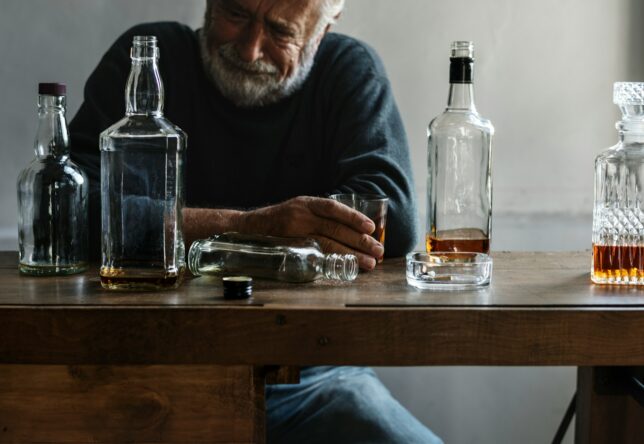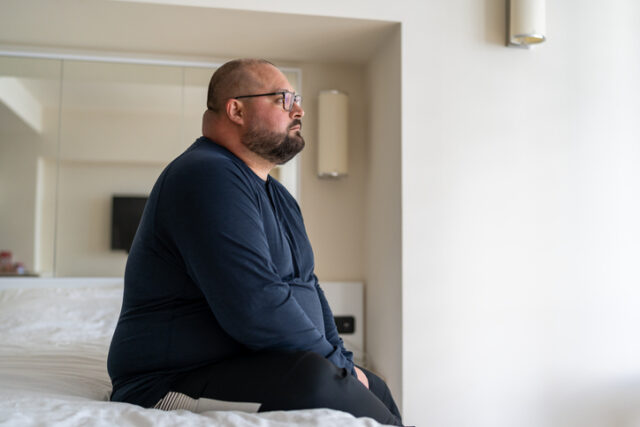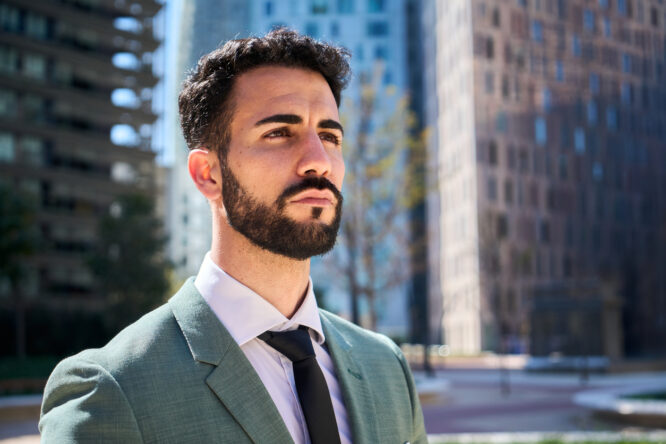Getting sober is one of those decisions that changes everything, but not always in ways people prepare you for.

You hear about the health improvements, the mental clarity, and the personal wins. What you don’t always hear is how messy, emotional, and weird it can feel along the way. The highs are real, but so are the uncomfortable surprises. These 10 things aren’t always mentioned, but if you’re on the path to sobriety, chances are you’ll go through every single one of them.
1. You’ll grieve the version of yourself that used to drink.

Even if you’re 100% sure you made the right call, there’s still a strange kind of loss that creeps in. The you that went out for happy hour, poured a glass to unwind, or always said yes to the second round—that version fades away, and it’s a lot more emotional than people expect. You’re not just ditching a substance; you’re saying goodbye to a familiar routine, an identity, and sometimes a social role you once held onto tightly.
That grief can catch you off guard, especially if you’re surrounded by people who expect you to feel nothing but pride. It’s okay to feel sad about leaving parts of yourself behind, even the messy ones. That sadness doesn’t mean you’re failing; it means you’re human, and you’re in the middle of real change.
2. People will treat you differently, and not always kindly.

Some friends won’t know what to say. Others might act weird or defensive, like your decision to quit is a silent judgement on their own habits. You may find that invitations stop coming, or people begin to act like you’re suddenly delicate or no longer “fun,” even though you’re still the same person without the drink in your hand.
That change can feel isolating, especially if your old social circle revolved around drinking. The people who stick around and support you? Those are the ones who truly see you. But it still stings to realise who can’t—or won’t—meet you in this new chapter.
3. You’ll realise just how many things revolved around alcohol.

You don’t notice it until you stop, but alcohol is everywhere. At dinners, birthdays, weddings, brunches, holidays—it’s built into the culture. Once you step back from it, you start to feel like you’re navigating a world designed for drinkers, and it can make even the most basic events feel unfamiliar.
At first, that can be overwhelming. You’re learning how to reimagine joy and connection without the social lubricant. But with time, you’ll find your footing and learn how to show up as yourself, no buzz needed. And eventually, that kind of clarity feels like a win no one can take from you.
4. Your emotions will come through stronger, and faster.

Without anything to numb, dull, or buffer your feelings, everything hits harder. Happiness feels huge, but so does grief, anger, anxiety, and shame. Suddenly, all the stuff you used to gloss over is now sitting right in front of you—raw, unfiltered, and ready to be felt.
That’s not a bad thing, but it takes some serious adjustment. You have to learn how to sit with your feelings instead of running from them, which can feel impossible some days. But it’s also where the real healing starts. You finally get to process instead of push down, and that builds resilience like nothing else.
5. You’ll wrestle with boredom in a way that feels physical.

Drinking often filled empty space. It marked the end of a workday, gave shape to weekends, added “something to do” when you were restless. Without it, time stretches out, and in early sobriety, that quiet can feel uncomfortable, almost like you don’t know what to do with your hands or your brain.
This boredom isn’t just about being unoccupied. It’s about facing parts of yourself that were always masked by distraction. And while it feels uncomfortable, it’s also temporary. You start learning how to exist in stillness again, and eventually that space turns into peace instead of panic.
6. You’ll suddenly notice other people’s drinking patterns.

Things that used to feel normal now stand out. You notice who can’t relax without a drink, who’s always looking for the next round, and who turns into a totally different person after a couple glasses. You’re not judging (hopefully!); you’re just seeing with clearer eyes now.
Sometimes, it’s uncomfortable. You may worry about people you care about or feel like a stranger in familiar places. But this awareness also helps you stay grounded in your decision. Once you see the patterns clearly, it’s harder to romanticise the chaos you’ve stepped away from.
7. Your sleep might get worse before it gets better.

You might’ve heard that sobriety leads to amazing sleep, and it does, eventually. But first, your body has to adjust. The early stages can come with restlessness, weird dreams, or random wake-ups that leave you more tired than before.
It’s frustrating, especially when you expected to feel more refreshed right away. Of course, this is part of your system resetting. Once your body finds its rhythm again, the kind of rest you get will feel deeper, more consistent, and genuinely restorative.
8. You’ll outgrow certain friendships, and that grief is real.

Some people were only in your life because you drank together. When that shared habit disappears, the connection often fades too. It doesn’t mean you didn’t care about each other. It just means the dynamic has shifted, and not everyone is built for that evolution.
It hurts. You might feel lonely or confused, especially when the separation isn’t dramatic, just slow and silent. But as you grow into this new version of yourself, you’ll start building relationships that are rooted in presence, not escapism. And those bonds will run deeper than anything built on shared hangovers.
9. Socialising without alcohol will feel awkward at first.

Showing up to a dinner, a date, or even a casual hang without a drink can make you feel weirdly exposed. You’re aware of your body, your words, your energy—all the things alcohol used to smooth over suddenly feel amplified.
But that discomfort slowly fades. Eventually, you realise that not only can you be present without drinking, but you can actually enjoy yourself more. It takes time to adjust, but there’s a kind of confidence that builds when you learn how to just be yourself, no filter needed.
10. You’ll feel more like yourself than you have in years.

This one sneaks up on you. It’s not some huge transformation overnight; it’s a quiet unfolding. You notice that you’re more steady, more grounded, more present. You laugh in a way that feels real. You cry and it moves through you, instead of swallowing you whole.
That clarity, that sense of peace—it hits different. It makes the awkwardness, the cravings, the lonely nights worth it. Because on the other side of all the uncomfortable stuff is a version of you that feels clear-eyed, strong, and finally, fully awake.




